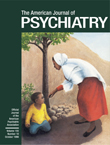Orphanages: An Idea Whose Time Has Come Again?
Orphanages recently have experienced an upsurge of interest as an alternative to our current badly beleaguered system of foster care and to the priority we give to preserving the biological family unit no matter how abusive, inadequate, partial, or otherwise dysfunctional that unit may be. Unfortunately, any proposal to reconsider the feasibility of long-term institutional care as not only a viable but perhaps even an advantageous system of child care is very quickly enmeshed and polarized in political rhetoric and long-held antagonisms based on a combination of old and misconstrued research and vested interests. As an example, after the Republican victory in the 1994 House of Representatives elections, then Speaker-Elect Gingrich proposed orphanage care as one component of his party’s intent to reform the welfare system. First Lady Hillary Rodham Clinton promptly labeled the proposal “unbelievable and absurd.” This, of course, required Mr. Gingrich (in a Meet the Press interview on Dec. 4, 1994) to defend his proposal by offering up anecdotal horror stories and suggesting that Mrs. Clinton should see the movie Boys Town (a 1938 idealized “true” story of an orphanage). Despite the enlightened level of this exchange, the issue itself did not and has not gone away and continues to be examined and debated in a resurrection following 50 or more years of disfavor and political incorrectness.
Why, first, did orphanages lose favor and de facto disappear after World War II as an acceptable child care system? Second, what factors have led to their return, at least as a respectable topic for discussion and for research? This return is illustrated in the article by Wolff and Fesseha on orphanages in Eritrea in this issue of the Journal. The reasons that orphanages lost favor include socioeconomic and cultural shifts after World War II, but the most important single factor was the various studies of the developmental consequences of mother-infant separation and institutional care, including affective, interpersonal, cognitive, and behavioral impairments. These studies were rooted in the psychoanalytic theories of the 1930s and 1940s associated with the observations of Anna Freud, John Bowlby, and Réné Spitz, emphasizing the importance of the early mother-infant attachment, consistency, establishing basic trust, and identity formation. By extension, orphanages became associated with the adverse consequences of long-term, impersonal, and affectively impoverished institutional care and foster care represented a substitute family as a “temporary” but stable and caring setting preceding return to the family or adoption. There is little indication that any serious consideration was given to the possibility that long-term, permanent-care orphanages could provide nurturing, stable, consistent child care conditions or that foster care could and did become a permanent form of temporary care that all too often itself reproduced the conditions from which the child or adolescent had been removed. Observations on the consequences of early separation and loss, affective deprivation, and impersonal institutional care contributed to stereotypes of both orphanages and foster care. These stereotypes have not been subjected to adequate study and, however well intentioned, have not well served either our society or the children and youth who have needed to be removed from their homes because of abandonment, neglect, abuse, parental inadequacy, or death. Those children, by contrast to their more fortunate peers, deserve the very best alternative opportunity that our society can afford to provide but, instead, where adoption simply has not been an option, have all too often received some combination of unstable foster care and/or return to a dysfunctional home. The system, albeit with the best of intentions, has been deluged and overwhelmed progressively over the past 40 years by the dramatic increase in illegitimate births to teenage mothers, by the increases in child and spousal abuse, and by the welfare system itself. Shorn then of political rhetoric, stereotypic perceptions, and past experiences, orphanages deserve a reconsideration as one option available when, whatever the reasons, neither adoption nor return to the family is possible.
Indeed, such a reconsideration is more impressively underway than most of us have had any inkling of. One piece of evidence for this is the volume Rethinking Orphanages for the 21st Century (1), edited by Richard B. McKenzie, Professor in the Graduate School of Management at the University of California, Irvine, and himself a 1950s orphanage alumnus. Another indication is the article by Wolff and Fesseha, who very matter-of-factly and unapologetically discuss the relative merits of two different management styles (authoritarian versus consensual) in terms of the emotional, behavioral, and cognitive characteristics of boys and girls aged 9 to 12 in two Eritrean orphanages. While there are reasons to question the relationships drawn between many of the findings and the differences in management styles, as well as the conclusion that one is clearly preferable, there is no question that both of these orphanages are adequately nurturing, safe, and literally life-saving environments for these children. So long as we cannot say this for all of our own children and youth, especially those for whom we have assumed responsibility, then we should open-mindedly explore orphanages as one alternative.
Address reprint requests to Dr. Wiener, Department of Psychiatry, George Washington University School of Medicine, 2150 Pennsylvania Ave., N.W., Washington, DC 20037.
1. McKenzie RB (ed): Rethinking Orphanages for the 21st Century. Thousand Oaks, Calif, Sage Publications (in press)Google Scholar



